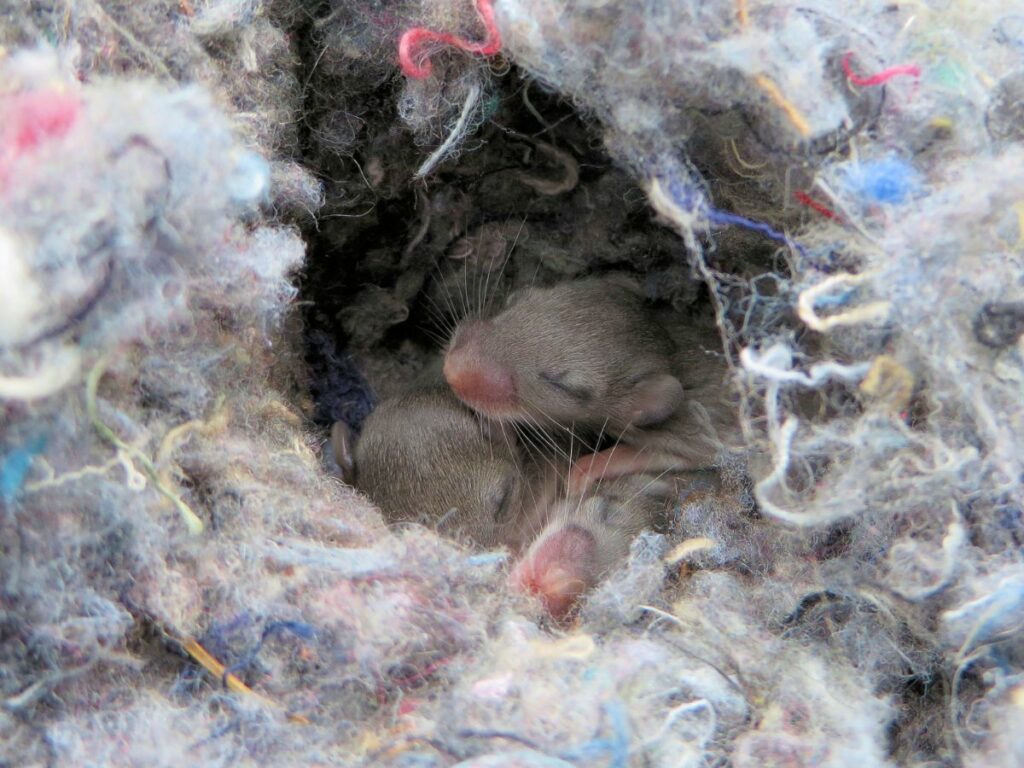
Contents
Content Summary
- When food resources become scarce in the winter, mice are expert hiders, cold-weather adapters, and fierce scavengers.
- In this article, we’ll examine why mice are more active in the winter and how homeowners and renters can keep a potential infestation at bay.
- How Can I Keep Mice Out in the Winter? Mice and other pests must be kept out of your residence through preventive measures.
- Mice mostly infiltrate during the winter; therefore, fall is an excellent time to protect your home from an infestation.
- We have been voted the Best of West Michigan Pest Control companies for eight consecutive years.
Yes, Mice Are Worse in Winter!
As the temperature drops and winter approaches, the threat of unwanted rodent visitors grows. You may have heard rumors or seen evidence of mice in your home or apartment building, but are mice worse in the winter? The unequivocal answer is yes! When food resources become scarce in the winter, mice are expert hiders, cold-weather adapters, and fierce scavengers. If mice have made your home or place of business their winter home, we can help. Call or contact us at Van Den Berge Pest Control if you need a skilled pest control expert to inspect and permanently solve your problem. In this article, we’ll examine why mice are more active in the winter and how homeowners and renters can keep a potential infestation at bay.
What Happens to Mice During the Winter?
When the temperature drops during cold weather, mice will find a cozy place to stay for the long, chilly winter. Mice that would not normally live indoors seek shelter in the winter. While it’s warm outside, most mice prefer to live in habitats such as the roots of trees, shrubs, thick grass, or hollow logs, where nuts, seeds, berries, and other types of food are easier to come by. However, mice must find a haven until spring, when the temperature drops too low, and they run out of food supplies. These mice are drawn to houses and other structures because they provide food, water, and warm, safe attic and wall spaces. When the weather is warm enough, mice with a permanent den within a structure will spend a lot of time outside looking for food and water. During the winter, however, they will not risk venturing outside to scavenge for food, making them more visible as they spend most of their time inside. Rodents can enter a structure through any crack or gap near the foundation or openings. Lack of food can cause mice to become more active during the winter because they must forage farther than usual. Mice also bring different parasites and disease microorganisms when they enter homes, so they are more than just a nuisance. They do not hibernate during the cold months, whether outside or indoors. During the winter, they actively seek food and shelter and avoid predators if they are out. Outside, these rodents nestle into the earth to rest or give birth. New litter can also contribute to an increase in the population of indoor mice. The breeding season for mice is in the fall when they can produce up to ten litters per year. Because mice mature in about a month, once winter arrives, many newly mature mice invade homes to avoid the cold. It also implies that once inside, these mice raise their broods, which can breed within a month. This is how a small mouse population can quickly turn into a massive infestation.
Damage
When mice get inside during the winter, they may nibble on anything, from wooden beams to storage containers. They also chew on wires and tear insulation. When these pests rip apart packaging for a tasty meal, their saliva and droppings also contaminate the food, and mouse saliva causes asthma attacks.
How Can I Keep Mice Out in the Winter?
Mice and other pests must be kept out of your residence through preventive measures. Mice mostly infiltrate during the winter; therefore, fall is an excellent time to protect your home from an infestation. Here are some things you can do:
- Move firewood and brush heaps that could serve as mouse nests from your house.
- Keep trash can lids closed.
- Fix foundations, siding, and roof cracks.
- Put screens over vents.
- Close up any window and door gaps.
- Reduce trees that hang over roofs.
Seeing mice in your home, especially during the winter, is most likely a sign of a much larger problem. Contact a reputable rodent control company that provides a comprehensive mouse treatment program. The best strategies include a thorough inspection, placing rodent baiting stations strategically, and frequent site visits to monitor mouse activity. All openings through which mice can enter the structure should then be sealed. Act quickly because while mice may be attempting to survive the cold, they cause significant home damage and are disease carriers. Contact the pest control specialists at Van Den Berge Pest Control at 616-392-7367. We have been voted the Best of West Michigan Pest Control companies for eight consecutive years.
Recent Posts
Top-Rated Indoor Ant Control Solutions for Homes
Imagine discovering a line of ants marching through your kitchen, seemingly unstoppable. These pests can
Top 3 Indoor Ant Control Solutions for Homes
Think of your home as a fortress, but even the strongest walls can be breached
Top Indoor Ant Control Solutions for Homes
When dealing with indoor ant infestations, understanding their behavior is vital. Ants are social insects
